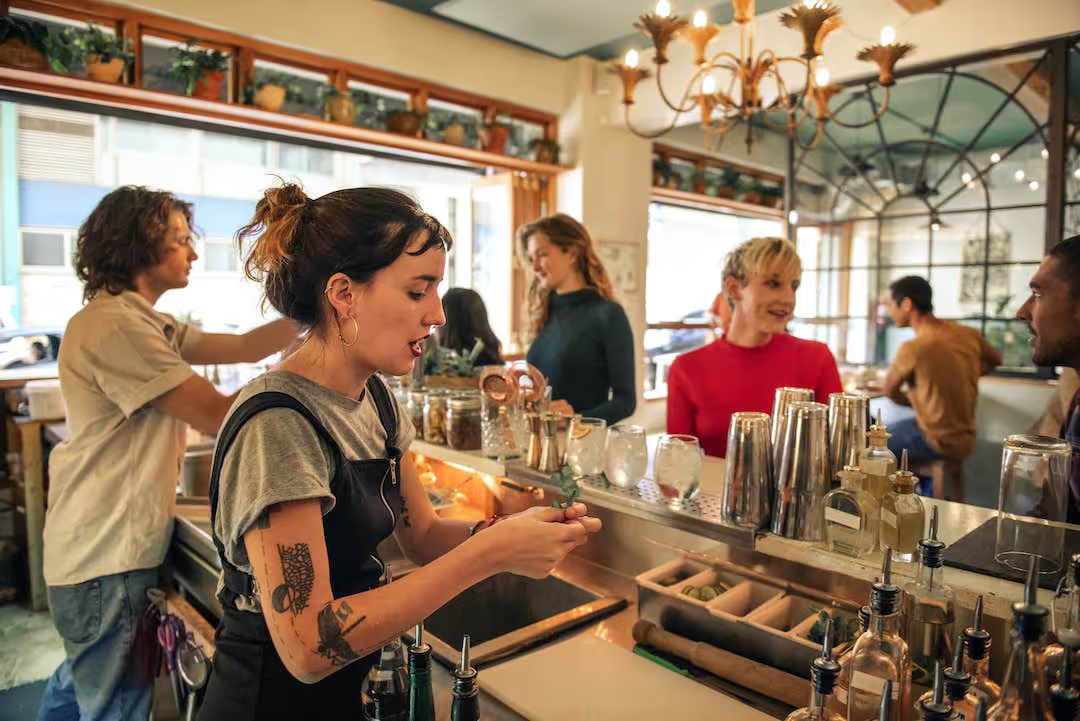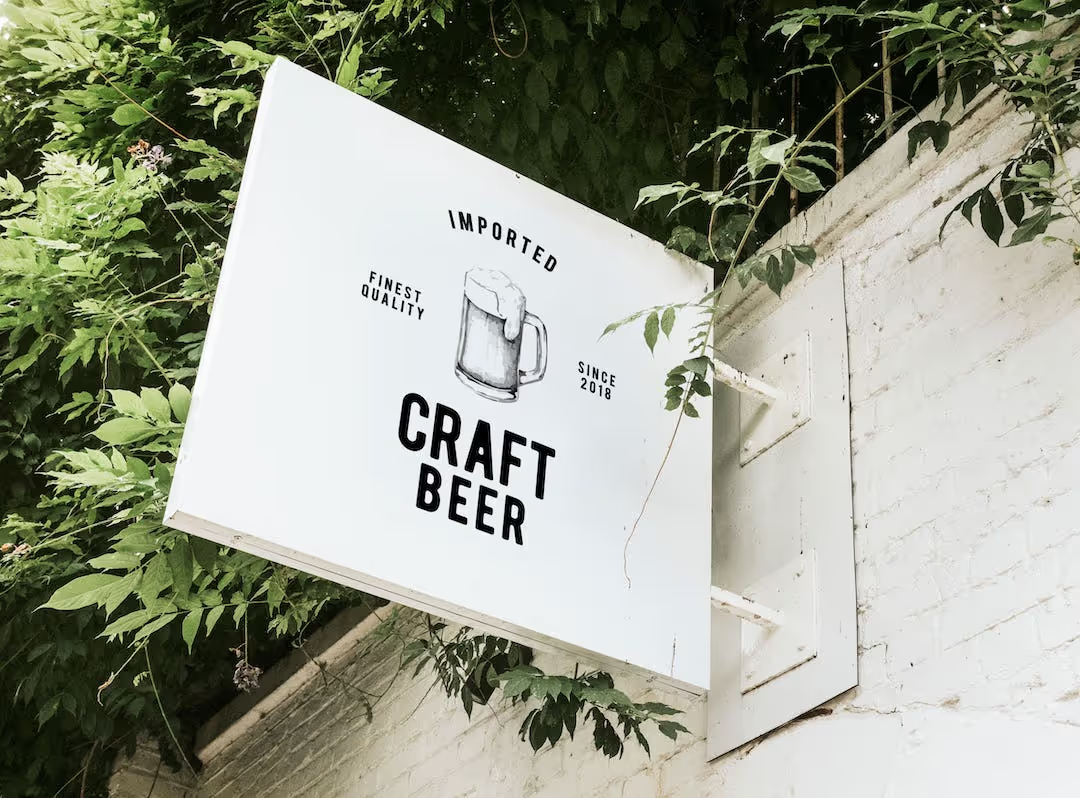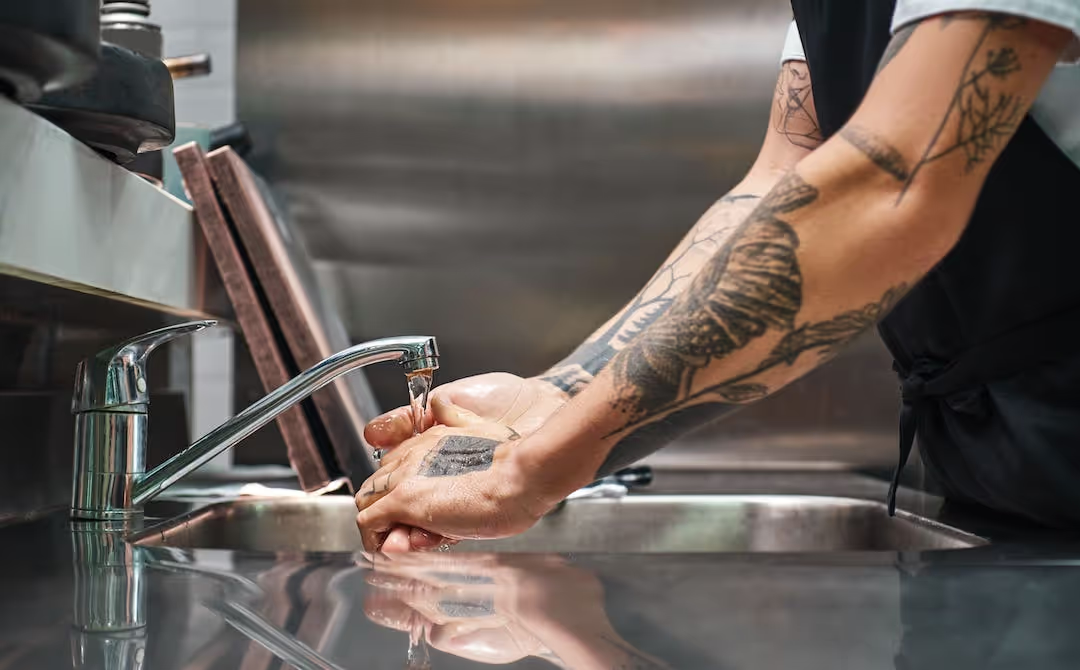Ready to modernize your Restaurant?
Talk to a restaurant expert today and learn how MarketMan can help your business
If you have any questions or need help, feel free to reach out
Request a demoDon't miss out on maximizing your restaurant's profits! Calculate your ROI with MarketMan
Calculate ROIOpening a new restaurant comes with its share of joys and challenges, but it's often the business and administrative aspects that present more hurdles. This side of the venture demands patience, but with careful planning, provides the greatest results, allowing you to savor the joys and wins of the business.
Navigating the world of licenses and permits can be a daunting task for aspiring restaurateurs, but it lays the groundwork for your business. The specific requirements can vary depending on your restaurant's location, spanning states, counties, and cities. Despite these geographical variations, there are some fundamental permits and licenses that most restaurant owners will need.
The following list encompasses the primary licenses and permits essential for launching and operating a restaurant successfully.
Whether you're embarking on launching your first restaurant, opening a second (or third) location, or ready to turn your restaurant business into a franchise, this guide will help you make the smartest decisions possible for your business
Download E-bookA restaurant business license permits you to open and operate a new business legally.
To obtain a restaurant business license you’ll need to submit an application to your local government or municipality, along with required fees and documentation. Visit the US Small Business Administration’s website to find out city-specific requirements for receiving a business license.
The process usually requires you to comply with local health and safety codes, have proper and safe equipment and facilities, and maintain proper insurance coverage.
The renewal process of restaurant business licenses varies depending on local regulations, but usually, business owners will have to renew their licenses annually.
The IRS will be keenly interested in your new project, so your new restaurant will need a Tax ID. Sole proprietors can file taxes with their Social Security number or an Employer Identification Number (EIN). Restaurants with more than one owner or employee must file with an EIN. You can apply via mail or the IRS website.
An online application for your EIN/Tax ID is available from the IRS.
A food service permit is a necessary license to handle and serve food to the public. It’s typically issued by your city or county health department.
Food service permits ensure your restaurant meets local health department requirements for food safety and sanitation. Obtaining a food service permit usually requires an application to your local health department and compliance with health and safety regulations. This often includes having staff with certified food handler cards, keeping food at the proper temperatures, and having proper storage and handling procedures in place.
Food service permits are renewable on an annual basis and require regular inspections by the health department to ensure compliance.
A certificate of occupancy (CO) serves as official verification that your premises meet essential building and safety codes, a crucial prerequisite for opening to the public. This certificate not only attests to compliance with building codes but also satisfies insurance and financial requirements.
To initiate the application process for a certificate of occupancy in your state, simply perform a web search for "[your state] certificate of occupancy" to access your local government's website and detailed application process instructions.
If your restaurant will serve alcohol, you’re going to need a liquor license. States usually have stringent licensing requirements for a liquor license.
Here's a concise guide on how to obtain a liquor license:

The first step is to research the laws and regulations of the state or country where your restaurant is located. This will help you determine the type of liquor license you’ll need and the requirements from local governing boards for obtaining it.
Have all your documents ready with information detailing your business’s legal name, location, and ownership structure to make the application process smoother. Submit your completed application to the relevant regulatory authority or agency along with any required fees and documentation.
You or your ownership team and key employees may be required to undergo a background check as part of the application process.
The regulatory agency may inspect your restaurant to ensure that it meets the requirements for a liquor license.
If your application is approved and all requirements are met, the regulatory agency will issue the liquor license. Now schedule your bartenders!
A health department permit proves your restaurant meets the local health department's requirements for food safety and sanitation.
Contact your local health department to find out all the requirements for obtaining the permit. In many areas, the health department will require a pre-opening inspection to ensure your restaurant meets local health and safety regulations. Schedule this inspection before opening for business and ahead of time since the entire licensing process can take up to 90 days.
After inspection, complete and submit your application, along with any required fees and documentation. This application will typically ask for detailed information about your restaurant — name, location, and ownership structure.
Complete any necessary training required for staff and management. You may need to complete training in food safety and handling to obtain a Health Department Permit.
Effective signage opens the door to more diners and greater sales. If you’re looking to market your offerings in the form of signs outside your establishment to draw in more customers, you’ll need a permit to do so.
Determine the type of sign you want for your business, whether it be a wall sign, awning, or freestanding sign. Work with a professional sign company or graphic designer to create a sign design that both meets local regulations and reflects your new restaurant's brand. You’ll need to apply for a signage permit from the local planning or building department, along with any required fees and documentation, such as the sign design.
The local planning or building department will review your application and sign design and determine whether your sign meets regulations. Like many of the licenses outlined here, the approval process may take several weeks. Once the signage permit is approved, hire a professional sign installer or contractor to have the sign safely installed.

Your new restaurant may need a building permit if your restaurant involves structural changes to a building, such as removing or adding walls, changing the location of windows or doors, or adding a new roof. Building permits ensure that changes like new plumbing fixtures or electrical outlets comply with local building codes and safety standards.
If your restaurant location was previously used for a different type of business, such as a retail store or office, a building permit most likely will be required to ensure that the building is safe and suitable for a restaurant.
Playing music in a restaurant can create a more enjoyable and relaxing atmosphere for your customers, which can improve the customer experience, increase customer satisfaction and loyalty, and boost profitability.
To play music and avoid copyright infringement, restaurants and bars alike need a music license from performance rights organizations.
A music license ensures that your business is in compliance with copyright law and respects (and pays for) the intellectual property rights of the copyright owner. When you obtain a music license, you pay a fee to the copyright owner or PRO, which in turn supports the artists and musicians who created the music.
Failure to comply with these rules can lead to large financial penalties of up to $30,000.
A resale permit, also known as a resale certificate or a seller's permit, depending on the state or local laws, is required to legally collect sales tax.
A resale permit allows you to collect sales tax and ensures that your restaurant complies with state and local tax laws and sales tax regulations. Failure to obtain a resale permit and collect and remit sales tax can result in penalties and fines from state and local tax authorities. In some states, a resale permit also allows the restaurateur to purchase goods at wholesale prices from distributors and suppliers.
To ensure that your staff and managers are properly trained in food safety and hygiene practices to prevent the spread of foodborne illnesses, you’ll need an employee health permit. This permit is also known as a food handler's permit or a food safety certification.
Most states and local health departments require food service employees to obtain an employee health permit as part of their food safety regulations. Employee health permits ensure that your employees are trained to understand and practice proper food handling, preparation, and storage techniques to prevent contamination and the spread of foodborne illnesses.
If a customer becomes ill due to contaminated food, your business may be held liable for damages. An employee health permit demonstrates that your team took appropriate measures in staff training in food safety and hygiene best practices.

The aim of obtaining a dumpster placement permit is to guarantee that the positioning and utilization of a dumpster do not pose safety risks, disrupt traffic flow, or cause disturbances to nearby properties.
Many local authorities have strict waste management and disposal guidelines, encompassing the proper placement and usage of dumpsters. Acquiring a dumpster placement permit assures that you’ll adhere to these regulatory requirements.
Improper placement of dumpsters causes:
The specific licenses and permits that a new restaurant needs to open up can vary depending on the location and type of your restaurant. The list can get long.
Other licenses include:
Opening a new restaurant can be a complex and time-consuming process that requires diverse expertise.
Some experts that you may need to consult when opening your new restaurant:
An architect can help you design your restaurant space to maximize functionality, efficiency, and customer experience while complying with building codes and safety regulations.
A contractor oversees the construction or renovation of the restaurant space, ensuring that the work is done on time, within budget, and in compliance with building codes and safety regulations.
A lawyer assists with legal issues such as business entity formation, contracts, permits, licenses, and employment laws.
An accountant provides financial planning, budgeting, and tax advice to help the restaurant owner manage the financial aspects of the business.
A restaurant consultant guides on all aspects of opening and operating a successful restaurant, including market analysis, concept development, menu planning, financial management, and staffing.
A marketing specialist develops a marketing plan to promote the restaurant and attract customers through advertising, public relations, social media, and other channels.
A food safety expert guides food safety regulations and best practices to ensure that the restaurant complies with local health department requirements and maintains high food safety standards.
Licensing and permit-gathering can be a lengthy process, so plan in advance. Once you've chosen your restaurant business model, drawn up the business plan, and found the perfect location, it’s time to start your licensing preparation. Opening a restaurant involves significant upfront costs, including licensing fees, equipment purchases, and operating capital. These expenses, combined with the time it takes to become profitable, often leave new restaurateurs with thin profit margins once they open their doors.
Control your food costs and increase profitability with MarketMan’s restaurant inventory management software. From inventory management and supplier coordination to advanced reporting and predictive analytics, MarketMan simplifies restaurants’ back-of-house operations so you can boost profits and drive growth. Talk to one of our experts to see it in action today.

Automate your inventory management, cut down on food costs, and simplify your back-of-house tasks with MarketMan's restaurant management software. MarketMan provides restaurateurs with the tools they need to minimize waste and streamline daily operations. Discover the power of automation and gain valuable insights to drive your restaurant's success. Schedule a demo now to explore how MarketMan can transform your business!
Talk to a restaurant expert today and learn how MarketMan can help your business